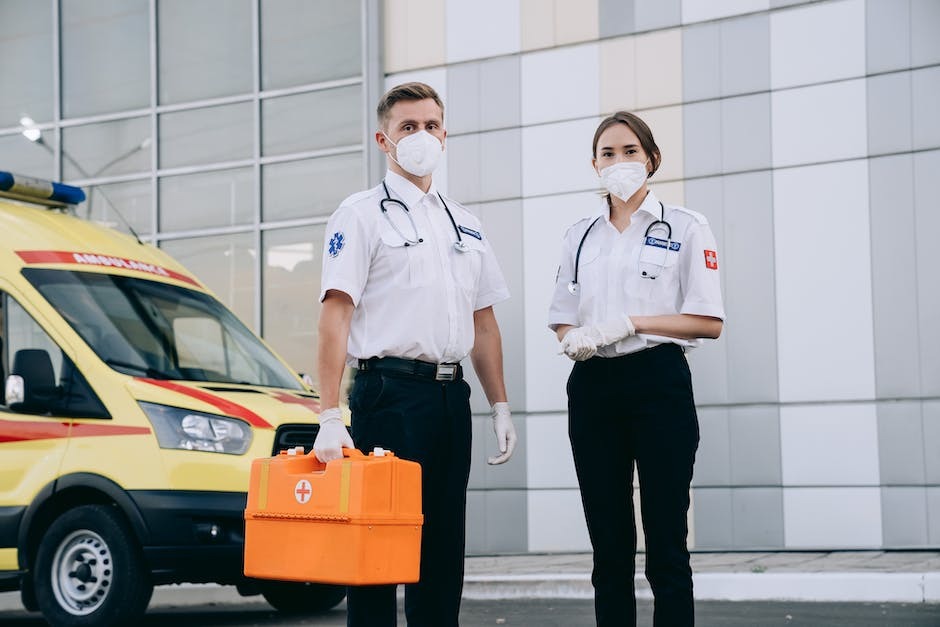First responders frequently witness difficult and traumatic events. Continuously witnessing these events can be damaging to one’s mental health. For instance, many first responders develop post-traumatic stress disorder (PTSD). Coping with PTSD brings many challenges for the individual, especially first responders who are constantly in a stressful environment. For some, these events and their experience with PTSD can lead to drug use and drug addiction.
It is important to reach out and seek help if one is experiencing PTSD symptoms from these events and/or is turning to substances to cope with this environment. At First Steps Recovery, there are therapies and treatment services available to first responders to help them cope, heal, and recover.
First Responders and Post-Traumatic Stress Disorder
On the job, first responders may experience death, grief, injury, pain, disaster, or loss as well as threats to their personal safety. Working long hours around these traumatic events can lead to poor sleep and physical hardships. From these experiences, high stress and PTSD can greatly impact firefighters, EMTs, police officers, and other first responders.
What Is Post-Traumatic Stress Disorder?
PTSD often manifests soon after a traumatic event, but it can also appear months or years later. Symptoms often come and go. There are four types of PTSD symptoms that vary from person to person. The four types include reliving the event, avoidance, increased negative thoughts, and feeling “on edge.”
Reliving the Event
Reliving the event may involve the person having nightmares, flashbacks, and triggers. Examples of triggers include hearing, smelling, or seeing things that remind one of the distressing events.
Avoidance Symptoms
People who experience avoidance symptoms may avoid large crowds because the setting feels dangerous. They may avoid driving, especially if the traumatic event was a car accident. Additionally, they may avoid watching media that is in any way related to the trauma or busy themselves to resist thinking about or discussing the traumatic event.
Negative Thoughts
A negative mindset and negative feelings may lead to the person feeling numb, forgetting about parts of the traumatic event, thinking the world is dangerous and losing trust, and feeling guilt or shame about the event.
Feeling on Edge
Feeling on edge can lead to difficulty sleeping and concentrating, getting startled by loud noises or surprises, and abusing alcohol or substances.
How Post-Traumatic Stress Disorder Can Lead to Drug Addiction
Due to experiencing such traumatic events and often developing PTSD, first responders may turn to drugs or alcohol to help them cope with PTSD symptoms. People try to suppress their feelings of high stress and anxiety as well as the overwhelming thoughts that come with PTSD.
PTSD is often the root cause of first responders’ substance use disorders (SUDs). For that reason, it is crucial to treat both drug addiction and PTSD during the recovery process. This will best promote clients’ full healing.
Treating First Responders With Drug Addiction at First Steps Recovery
First responders are often treated by the knowledgeable team at First Steps Recovery. The facility offers many programs for this particular group of clients.
Detoxification is implemented first, in which clients are monitored and supported as their physical bodies undergo this cleansing process. After detoxification, clients are given a personalized treatment plan.
First responders often cannot leave work for extended periods of time, depending on the severity of their PTSD and drug use. In these cases, an intensive outpatient program (IOP) is put in place to support their recovery journey. To help clients cope with PTSD symptoms, clinical therapy approaches to care are also put in place.
Treating Drug Addiction With Intensive Outpatient Programs and Clinical Approaches
The combination of IOP and clinical care is important for first responders who are recovering from substance abuse and healing from PTSD simultaneously. The IOP allows first responders to continue their normal routines while also receiving care and treatment. This treatment is reflective of their personal needs and is the same as care received through inpatient programs. This care includes standard clinical care and holistic care. Holistic approaches include art, music, and wilderness therapies to name a few. These therapies help clients express themselves and connect with their emotions in a non-traditional way that sometimes facilitates deeper healing.
It is important for first responders to take advantage of traditional forms of therapy as well. These clinical approaches include psychotherapy, group therapy, and case management. Psychotherapy is typically encouraged for those struggling with PTSD. While also recovering from substance abuse, it is crucial to treat and engage with the root cause of the SUD. Treating the root cause helps clients heal fully, which is especially important if the first responder is part of an IOP and is still on the job while healing.
Healing and recovery enable first responders to live healthier and happier while still being able to perform the work they love. Likewise, after one’s treatment plan closes, First Steps Recovery continues to stay in touch with clients to ensure a smooth transition and prevent relapse.
Here at First Steps Recovery, we help first responders heal and recover from drug addiction that stems from post-traumatic stress disorder (PTSD). On the job, first responders experience many traumatic events that can detrimentally impact their mental and physical well-being. To cope with symptoms of PTSD, first responders often turn to alcohol or drugs. Drug addiction can then limit their performance on the job and greatly impact their overall life quality. At First Steps, a combination of standard treatments and holistic therapies is provided to this community to help them recover from drug addiction while also helping them heal from PTSD and avoid relapse. To learn more about treatment and therapy options, call First Steps Recovery today.




